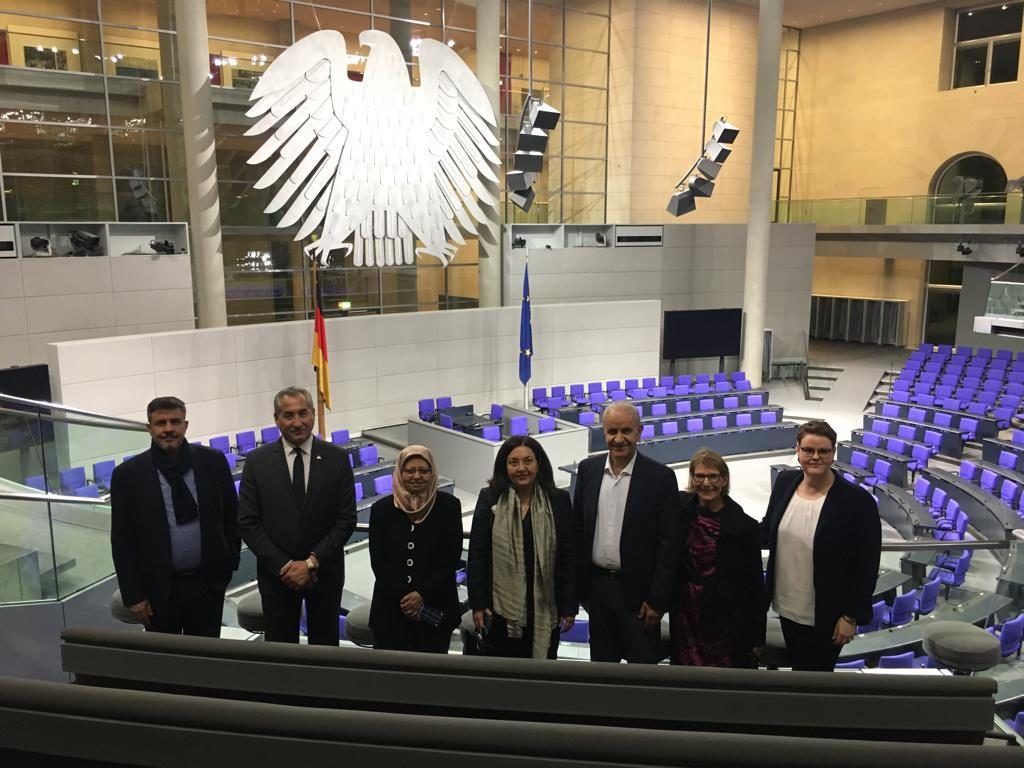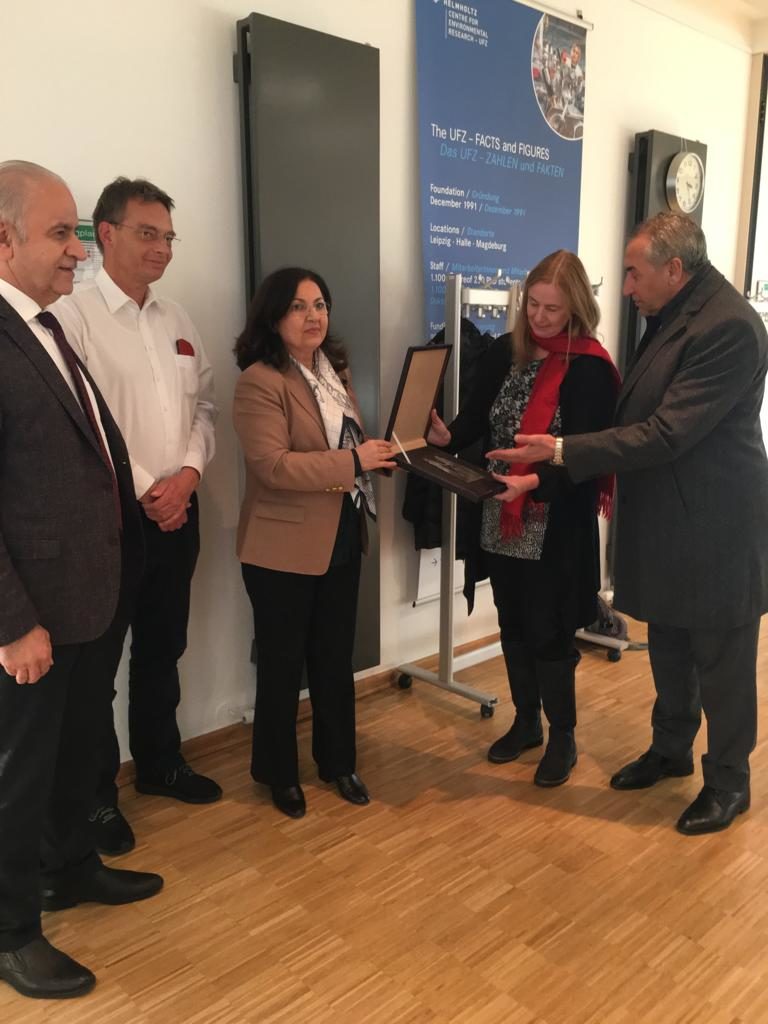Searching for approaches to solve Iraq’s environmental issues
Iraq is currently faced with the interplay of multiple challenges such as environmental degradation, resource competition and scarcity, as well as human insecurity. The country is marked by massive environmental problems; plastic, rubbish, and industrial waste contaminate various water bodies, critically diminishing fish populations in the Tigris and Euphrates rivers. In addition, a steady decline in water resources, particularly in rivers, due to both increased droughts and resource competition from neighbouring countries puts further tension on transboundary water usage and regional cooperation.
In order to tackle these issues, the establishment of an environmental institute is planned that not only promises closer cooperation with the relevant departments of the country’s universities, but that also entails research and environmental programmes.
Motivated by these goals, elbarlament organised a study trip to Germany for a high-ranking Iraqi delegation, with the support of the Federal Foreign Office (AA) and the Federal Ministry for the Environment, Nature Conservation and Nuclear Safety (BMU). The Iraqi delegation was headed by the First Lady of the Republic of Iraq, Dr Serbagh Salih. Other delegation members included Dr Jassim Alfalahi, Deputy Minister of Environment and Health; Dr Abdulbary Almudarris, MP, Council of Representatives and Mr Mohammed Taher Al- Tamimi, General Director of the NGO Directorate and Chairman of the Secretariat of the Council of Ministers.
The study trip took place from the 27th to the 31st October 2019 and offered an exchange between Iraqi decision-makers and leading German institutions in the fields of science, civil society and politics to discuss pressing issues such as climate change, water management, environmental protection and conservation, and resource-saving energy sources. The study trip commenced with visits to the First Lady of Germany, Mrs. Elke Büdenbender, the Federal Foreign Office and the Federal Environment Ministry. The delegation also visited the Federal Environment Agency in Dessau and had an intense exchange of ideas with the German Council for Sustainable Development. The Helmholtz Centre for Environmental Research in Leipzig presented the current research on decentralised wastewater management for water-scarce regions, the impact of pollution through toxicants such as pesticides on surface waters, as well as the project ‘Future Trajectories for Jordan’s Water-Energy-Food Nexus’. Furthermore State Secretary Volker Ratzmann informed the Delegation about the “Policy to be heard” of the State of Baden Württemberg.
Furthermore, joint meetings with German civil society organisations at the forefront of environmental activism and civil mobilisation highlighted the importance of civil participation and cooperation between the state and the civil society in the planning of environmental projects.
The delegation was able to exchange and compare ideas, experiences, and approaches to securing and improving water quality, promoting renewable energy sources, combatting resource scarcity and protecting vulnerable ecosystems and Iraq’s unique natural heritage.
These issue areas were identified as essential policy fields that need to be addressed in order to ensure a proper stabilisation of social structures and ultimately move towards a more peaceful Iraq.


The study trip to Germany was organised with the support of the Federal Foreign Office (AA) and the Federal Ministry for the Environment, Nature Conservation and Nuclear Safety (BMU).